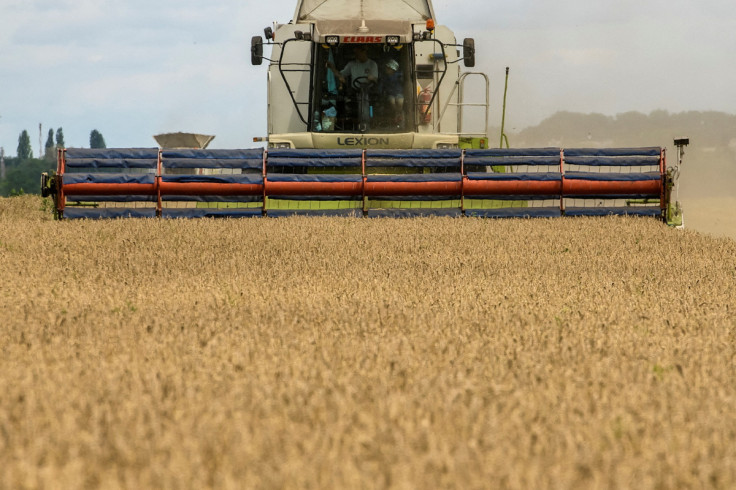UAE's 400-Hectare Wheat Farm Expects First Harvest In March
KEY POINTS
- The pandemic heightened concerns over food security in the UAE
- The UAE currently imports 90% of its food
- The wheat enterprise project is expected to produce 1,600 tonnes of wheat per year
The first harvest of the 400-hectare wheat enterprise project, launched in Sharjah's town of Mleiha to ensure national food security, is expected in March.
The country had opened the farm in November 2022 as concerns over supply chains increased amid the COVID-19 pandemic and the war between Russia and Ukraine, Reuters reported.
"We are expecting the harvesting date to be any time between March 15 and 20," Sharjah's Department of Agriculture and Livestock Chairman Khalifa Alteneji told the National.
"The wheat will be going to the local market here in Sharjah and UAE," he said, adding that the products will be available in the market by May or June.
The UAE, which currently imports 90% of its food supply, envisions to expand the wheat farm to 1,400 hectares by 2025 and eventually to 1,900 hectares. The farm uses desalination as an alternative source of water for irrigation, considering the water scarcity and lack of arable land in the country. It also uses artificial intelligence and thermal imaging to collect weather data, monitor the growth of wheat, and avoid wastage.
"This is a special agricultural platform, which can help identify the irrigation quantity that was completed, and to plan the irrigation quantity for coming days," Agriculture Director Ibrahim Ramadan told Reuters.
The Sharjah Desert accounted for 333,000 tonnes of the 1.7 million metric tonnes of wheat imported by the UAE in 2022. Officials say the Mleiha Farm is expected to produce about 1,600 tonnes of wheat per year, eventually lowering the costs of energy required to produce the desalinated water needed every day for irrigation.
"The cost of this desalinated water and of the final project, will hopefully be similar to the market," said Alteneji.
Starting March, farmers at the wheat farm will set up harvesting machines at the fields to prepare for the harvest season.
Wheat crops grown on the massive farm are free from pesticides and chemicals. The enterprise project also uses highly automated systems, operating with only two engineers and about seven workers.
As of now, experts are continuously identifying which types of wheat from around the world can grow in the UAE soil.
"We have a small experimental farm, in which we sow about 30 varieties of wheat," said Dr. Alteneiji. "The crops are studied, monitored, and measured every day by experts. Based on these experiments, we select the best variety of wheat for the project and work on developing them in the future."
This agricultural achievement for the UAE comes at a time when the country is preparing to host the Cop28 climate summit from Nov. 23 to Dec. 12, 2023, in Dubai.

© Copyright 2023 IBTimes AE. All rights reserved.




















